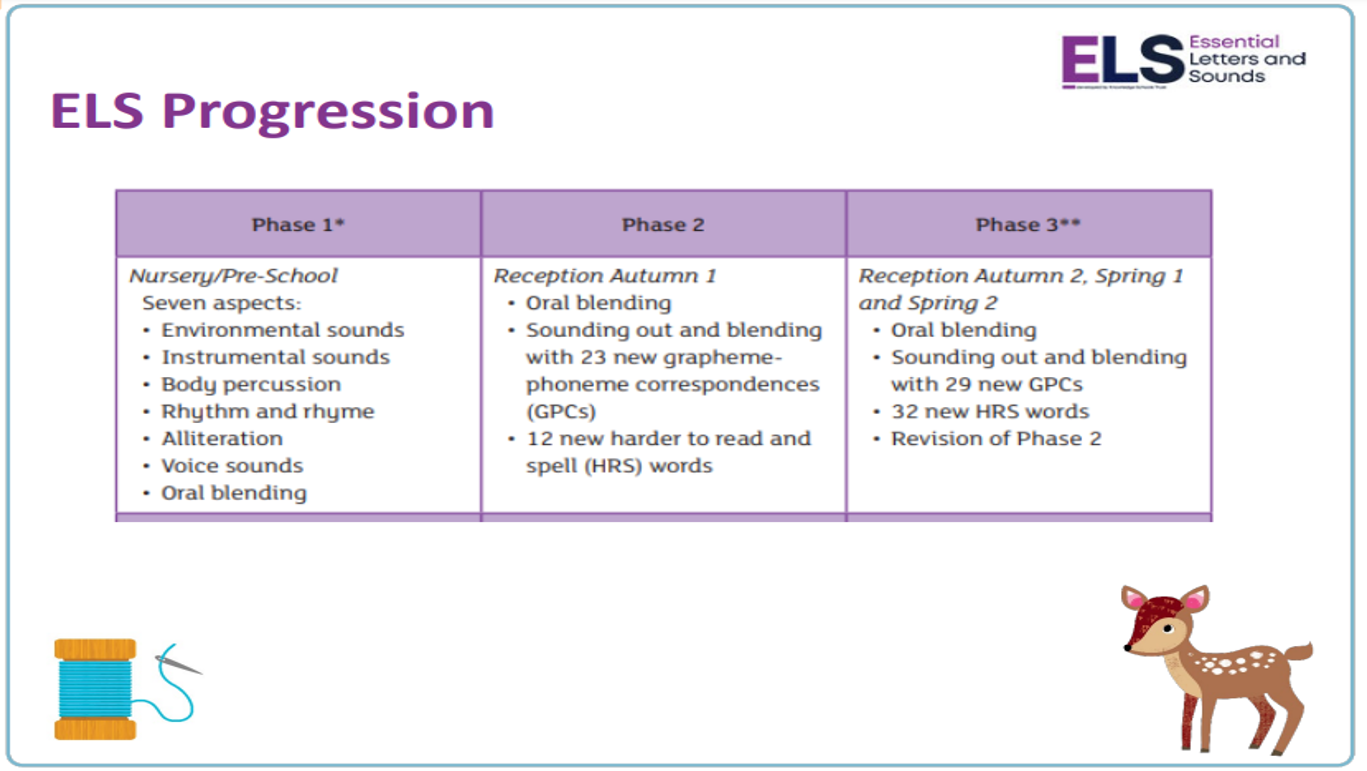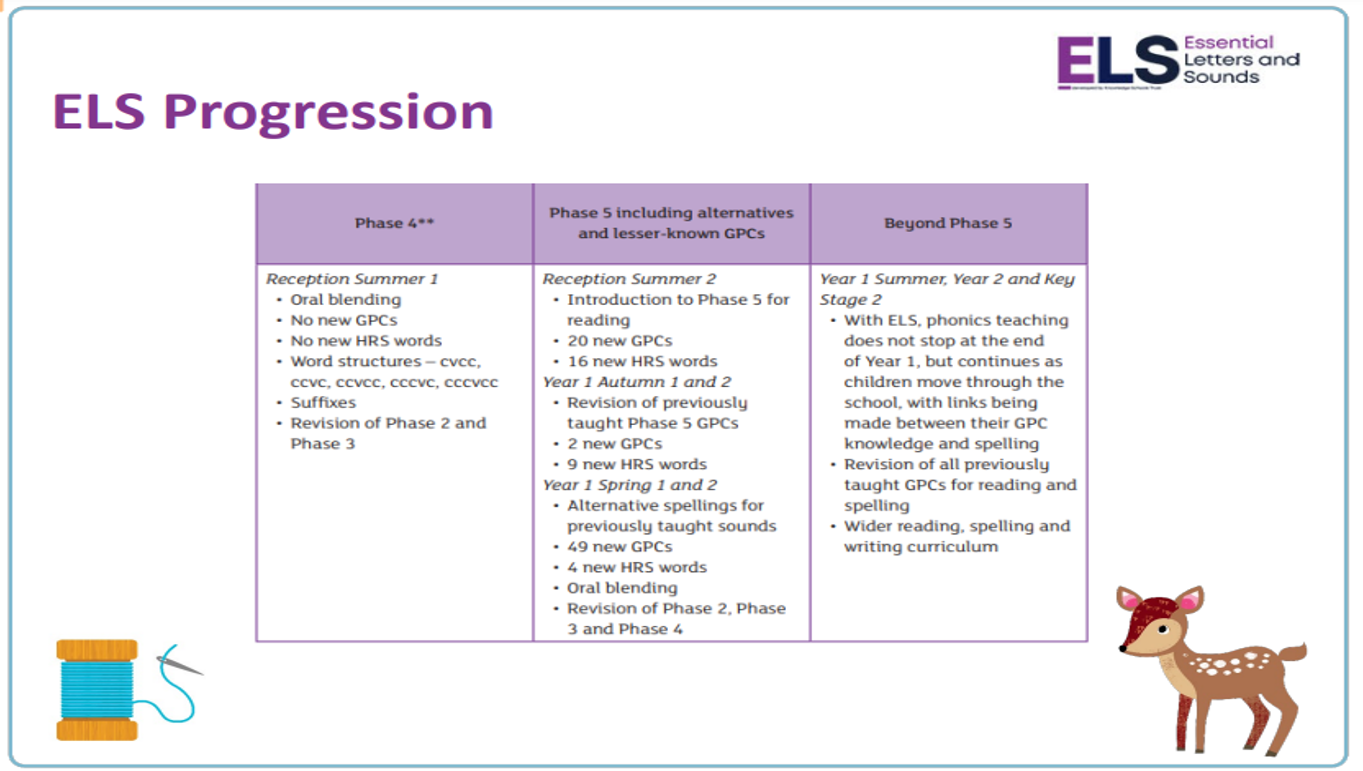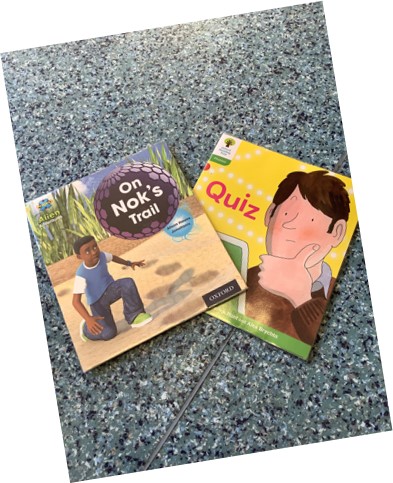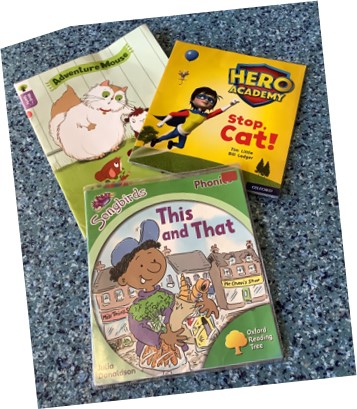Phonics
Our chosen phonics scheme at Dorridge Primary is Essential Letters and Sounds.
What is Essential Letters and Sounds?
ELS teaches children to read using a systematic synthetic phonics approach. It is designed to be used as part of an early learning environment that is rich in talk and story, where children experience the joy of books and language whilst rapidly acquiring the skills to become fluent independent readers and writers.
ELS teaches children to:
- decode by identifying each sound within a word and blending them together to read fluently
- encode by segmenting each sound to write words accurately.
We know that for children at the end of Key Stage 1 to achieve the age-related expectations, they need to read fluently at 90 words per minute. As children move into Key Stage 2, it is vitally important that even those who have made the slowest progress are able to read age-appropriate texts independently and with fluency.
For children to engage with the wider curriculum, they need to be able to read well, making inferences and drawing on background knowledge to support their developing understanding of a text when they read. To do this, they need to be able to draw not only on their phonic knowledge but also on their wider reading and comprehension skills, each of which must be taught.
The first step in this complex process is the link between spoken and written sounds. ELS whole-class, daily phonics teaching must begin from the first days of Reception. Through the rigorous ELS teaching programme, children will build an immediate understanding of the relationship between the sounds they can hear and say (phonemes) and the written sounds (graphemes).
Progression of Phonics


Reception and Year 1 Progression
Decodable books
It is vital that whilst children are learning to read, they read books that match their phonic knowledge. The Oxford University Press decodable readers support Essential Letters and Sounds. These books have been carefully matched to every aspect of the programme and to the sounds that your child is learning in school.

These books are intended to be used during the Review lesson on Day 5 of each week and as home readers. They are also recommended for use in other reading sessions to give children plenty of opportunities to develop their phonic knowledge and reading fluency. Children keep the books for one week and need to aim to re-read them at least four times in this period. Re-reading ensures that children develop their reading skills and fluency. This, in turn, supports their learning in school; as children become more fluent at reading, they are able to focus on their new learning. 
The children's reading book will matched the phase of phonics that they are currently learning. When your child knows all of their phonetic sounds up to and including Phase 5, they will move onto the Oxford Reading Tree scheme from Stage 6 on-wards.
This link will take you to the Oxford Owl ELS page with lots are useful information and ways to support your child at home.
Here are some helpful videos to help you pronounce each phoneme correctly.
The documents below will show you the phrases that match each grapheme (written sound):
Parent Phonics Workshop
Please find below a link to the PowerPoint of our Phonics Workshop that was held in September.
